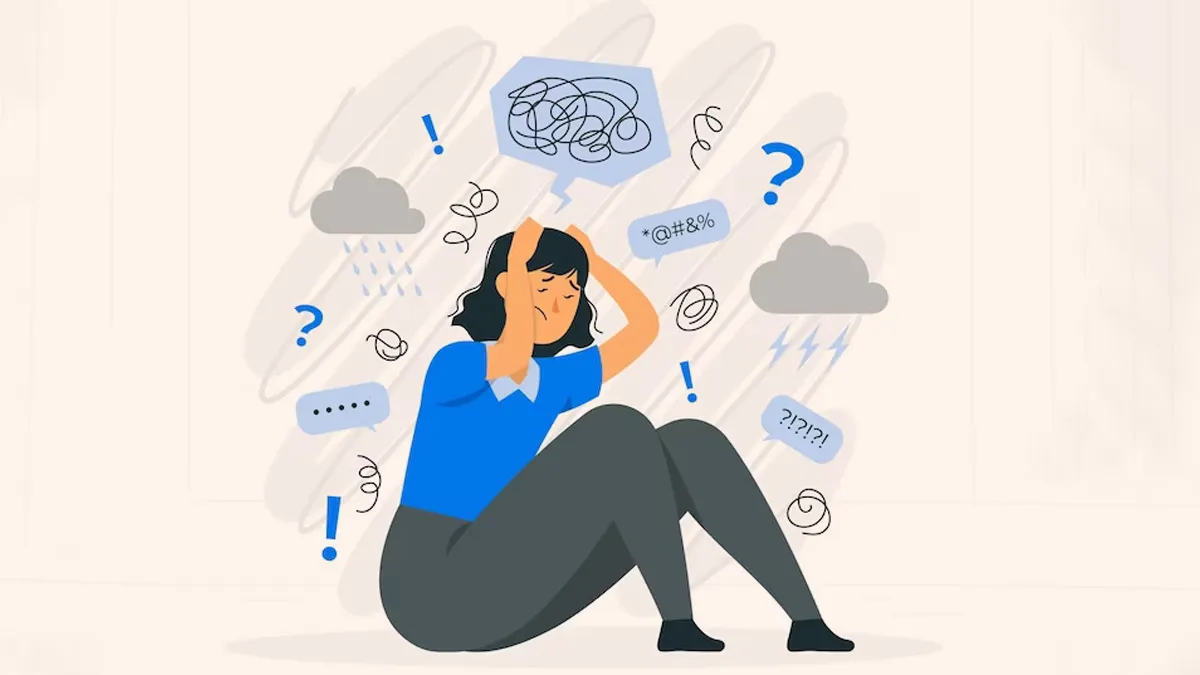
For some of us, beginning a new treatment is a move to enhance our health or well-being. However, what if that same treatment makes you feel uncomfortable, anxious, or nervous? Experts highlight that it's not your imagination, and certain medications can impact your mood and mindset. Whether you're taking a prescription medication, hormone therapy, or even an over-the-counter medication, side effects sometimes include anxiety-like symptoms like a racing heartbeat, sinking feeling, or insomnia.
Table of Content:-
CHECK YOUR
MENTAL HEALTH

In an exclusive interaction with the editorial team of Onlymyhealth, our expert, Dr Pooja Pillai, Consultant – Physician, Aster CMI Hospital, Bengaluru, explained that the important thing is to know why this occurs and how to take care of it without compromising your health. Here is everything she shared with us.
Why Antibiotic Medications Cause Anxiety
Some medications affect the chemistry of the brain or the nervous system, directly or indirectly, inducing changes in mood. According to Dr Pillai, the following are usually the culprits:
- Steroids (such as prednisone): These can increase the level of cortisol, causing irritability and anxiety.
- Thyroid medicines: Overreplacement of thyroid hormones can simulate symptoms of anxiety.
- Asthma inhalers or decongestants: These include stimulants that may raise heart rate and jitteriness.
- Antidepressants (SSRIs, SNRIs): Ironically, these can create anxiety in the initial few weeks as your body acclimates.
- Caffeine-laced painkillers or supplements: These overstimulate your system, particularly when mixed with coffee or energy drinks.
- Even herbal or natural options can be a culprit, and sometimes can increase nervous energy in sensitive people.
Also Read: Desk Job Worker? Here's How You Are At Risk of Blood Clots and How To Avoid

Recognising the Signs of Medication Anxiety
“Medication anxiety is not always textbook-style anxiety. You may see the following signs:” said Dr Pillai:
- A persistent feeling of restlessness or tension inside
- Sleep disturbances or vivid, disturbing dreams
- Irritability without explanation
- Racing thoughts or trouble concentrating
- Rapid heartbeat, shaking, or sweating
If these symptoms began soon after a new treatment or a change in dosage, your medication is likely the cause.

What You Can Do About Medication Anxiety
If you are dealing with medication anxiety, here are some expert-approved ways of managing it:
1. Speak with your doctor before discontinuing anything
Don't stop your medication abruptly, it might worsen things. Talk about your symptoms to your doctor instead. They may change your dose, alter your schedule, or try a milder option.
2. Symptom Journal
Mark the times when anxiety increases, the medications you've taken, and the amount of sleep or coffee. This allows your physician to identify the cause more specifically.
3. Calming Rituals
Basic breathing exercises, meditation, or light yoga can calm your stress response while your body gets used to it.
4. Get Enough Sleep and Eat Well
Sleep and nourishing meals give your nervous system a boost. Magnesium-rich foods (such as almonds and spinach) and omega-3 foods (such as fish and walnuts) might stabilise mood.
5. Avoid Overstimulation
Reduce caffeine, nicotine, and energy drinks, can supercharge anxiety when taken with some medications.
6. Find Emotional Support
Speaking with a therapist is incredibly useful if your anxiety becomes overwhelming. Cognitive Behavioral Therapy (CBT) can help you better manage anxiety triggers.
“In case of panic attacks, suicidal tendencies, extreme insomnia, or feeling disconnected from reality, get medical help immediately. These may indicate a severe side effect of your medication or an underlying mental health issue,” she added.
Bottomline
Your treatment needs to make you better, not worse. Though anxiety as a result of medication is disconcerting, it's typically manageable with prompt action, discussions with your physician, and some support through lifestyle. Keep in mind that your healing path is a partnership, and knowing the right balance between therapy and wellness is the key to recovery.
Also watch this video
FAQ
1. Can all medications cause anxiety?
No, but some that influence hormones, brain chemicals, or the nervous system are more apt to produce anxiety-like effects.2. How long does medication-induced anxiety last?
In most situations, it gets better within several weeks as your body gets used to it. If it persists after a month, talk to your doctor.3. Should I stop taking my medication if I feel anxious?
Never abruptly stop. Ask your doctor first, they can safely change or substitute the medication to minimise side effects.
How we keep this article up to date:
We work with experts and keep a close eye on the latest in health and wellness. Whenever there is a new research or helpful information, we update our articles with accurate and useful advice.
Current Version
Oct 07, 2025 16:17 IST
Modified By : Tanya SrivastavaOct 07, 2025 16:17 IST
Published By : Vani Malik